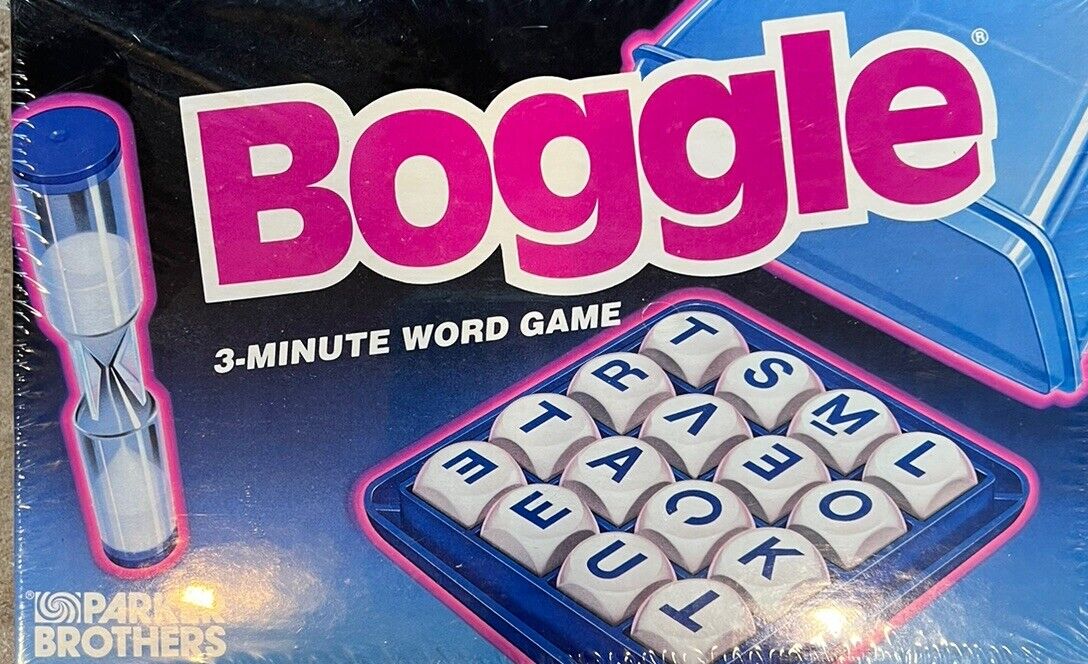Boggle (1972)
Boggle
Boggle is a word game invented by Allan Turoff and originally distributed by Parker Brothers in 1972. The game is played using a plastic grid of lettered dice, in which players try to find as many words as they can from a grid of lettered dice, within a set time limit.
Why is Boggle Popular?
Boggle is popular because it is a fast-paced and challenging word game that can be played by people of all ages. It is especially popular among Scrabble players because it takes a very short time, three minutes, to play a round, but still tests the ability to quickly find as many words as possible.
Game Components of Boggle
How To Setup Boggle
To set up Boggle, one player shakes a covered 4×4 tray containing the 16 cubic dice until they settle into the tray. Once the dice are in place, the cover is removed, and the three-minute sand timer is started.
Gameplay Mechanics and Game Objective
– Three-letter words: 1 point
– Four-letter words: 1 point
– Five-letter words: 2 points
– Six-letter words: 3 points
– Seven-letter words: 5 points
– Eight or more letters: 11 points
Player Experience
Playing Boggle is a fast-paced and mentally stimulating experience. Players must quickly scan the grid of letters to find words, making it an excellent game for improving vocabulary and word recognition skills. The time limit adds an element of pressure, making the game exciting and challenging.
Pros
Cons
Personal Thoughts on Boggle
Boggle is an excellent game for anyone who loves words, puzzles, or fast-paced mental challenges. It is particularly good for families, as it can be enjoyed by both children and adults. The game’s simplicity and the ease of learning its rules make it a great introduction to board games for new players. However, it may not be ideal for those who prefer more complex or strategic games. Overall, Boggle remains a classic and enjoyable addition to any game collection.
We are supported by our audience. When you purchase through links on our site, we may earn an affiliate commission, at no extra cost for you. Learn more.

